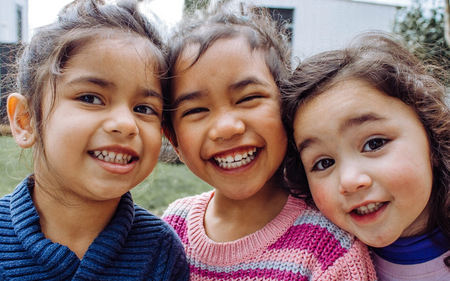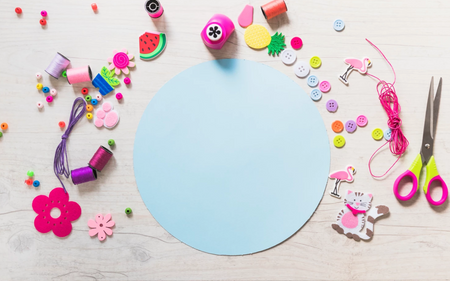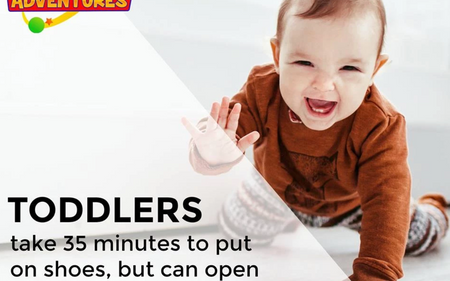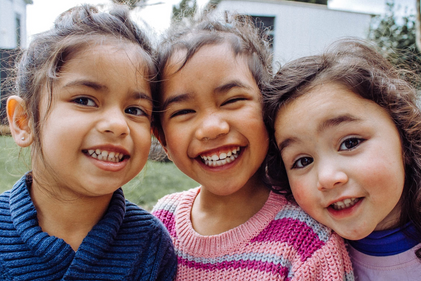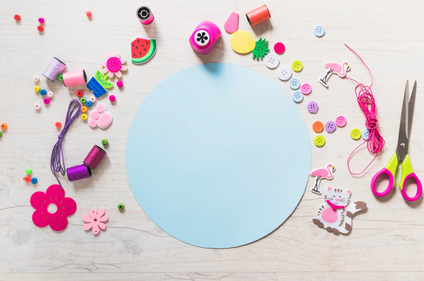Shed those shoes: Being barefoot benefits brain development and more!
Children have been moving in sneakers for physical activity for so long we seem to have forgotten that feet do have sentient qualities. They can be used to grip the floor for strength and balance, and their different parts (toes, ball, sole, heel) can be more easily felt and used when bare. Furthermore, there is evidence indicating that going barefoot strengthens feet and improves body alignment. Young children feel a natural affinity for the ground that can be enhanced by removing all the barriers between it and the feet. Nothing really startling there! But you might be surprised to learn that there’s scientific evidence that barefooted is better. Among other things, it’s important to development of the nervous system and to optimal brain development as well! Turns out the feet are the most nerve-rich parts of the human body, which means they contribute to the building...
Toddlers making friends
Watching toddlers making friends for the first time can be a delight. It’s good for your young child to start learning how to play well with other children. This lays the groundwork for later social skills. Toddlers making friends: what to expect When children are very young – aged 1-2 years – they generally play with the other children around them, rather than choosing a ‘best’ friend. Many of your child’s playmates will be the children of people you know – for example, friends, family or parents you meet at playgroup. Toddlers vary in how social they are. Some are naturally more sociable and can manage more playmates, whereas others are more comfortable with fewer playmates. As your child gets older and develops verbal skills, he’s likely to start telling you who he likes playing with. Preparing your child for toddler friendships Your...
Encouraging Your Child's Sense of Humor
A sense of humor can brighten family life. You can blow raspberries on a baby's belly, put on a silly hat and chase a 3-year-old, or pretend to fall into a pile of leaves to amuse a first-grader. As kids grow into preteens and teens, you can share puns and jokes as their sense of what's funny grows more sophisticated. Laughing together is a way to connect, and a good sense of humor also can make kids smarter, healthier, and better able to cope with challenges. We tend to think of humor as part of our genetic makeup, like blue eyes or big feet. But a sense of humor actually is a learned quality that can be developed in kids, not something they're born with. What's So Funny Anyway? Humor is what makes something funny; a sense of humor is the ability to recognize it. Someone...
Developmental Benefits of Beading for Children
Kimberly Voaden, an Occupational Therapist with over 10 years experience working with children of all ages strongly endorses beading as an excellent leisure activity, promoting childrens' development in the following areas. Threading with beads is not only fabulous for developing essential fine-motor skills but can also be used as a way to introduce young children to a variety of mathematical concepts such as colours, patterns, shapes and counting. Many people leave beading till their child is a bit older and has developed the fine motor skills needed to participate, but even toddlers can have a go with the right materials. Fine Motor Skills: Grasping: Various sizes of beads promote different grasps. Larger beads often promote the "3-jaw chuck" grasp, similar to holding a large pencil or marker. Smaller beads encourage children to use their pincer grasp, thus strengthening the small muscles of their hands. In-hand manipulation skills: Many components of...
How Kids Learn to Play: 6 Stages of Play Development
Play is all about having fun! Any activity, organised or unstructured, your child finds fun and enjoyable is considered play. But play is more than just a fun activity for your child! As a child grows they go through different stages of play development. While playing, children learn and develop important skills they will continue to use throughout their lifetime. Problem solving, creativity, and willingness to take risks are just a few of the skills developed through play. Children who use their imagination and ‘play pretend’ in safe environments are able to learn about their emotions, what interests them, and how to adapt to situations. When children play with each other, they are given the opportunity to learn how to interact with others and behave in various social situations. Be sure to give your child plenty of time and space to play. There are 6 stages of...




